Happy July 4th...Hopefully?
The barrier between President and King has never been more blurred—and it didn't start with Donald Trump
This may come as shock to some, but while the blurring between President and King has accelerated post Donald Trump, it did not begin with Donald Trump. On this Fourth of July, if we hope to protect our Republic and maintain democratic rule (and prevent a Trump return to the White House), it is critical we understand the history of how we got to a point where the Supreme Court is endorsing Trump’s claim that a President has unlimited immunity. Let’s Address This.
How Did We Get Here?
Some 248 years ago, on July 4, 1776, Americans declared independence from the British monarchy, led by a king who believed he had the “divine right” to rule with limitless power. As Alexander Hamilton would soon contrast in the Federalist Papers No. 69, the role of the President was quite different to that of a King:
The President of the United States would be liable to be impeached, tried, and, upon conviction of treason, bribery, or other high crimes or misdemeanors, removed from office; and would afterwards be liable to prosecution and punishment in the ordinary course of law. The person of the king of Great Britain is sacred and inviolable; there is no constitutional tribunal to which he is amenable; no punishment to which he can be subjected without involving the crisis of a national revolution.
And while some might point to Trump’s unprecedented 34 felony convictions (and three pending criminal trials) as proof that Presidents are held to the same standard as ordinary citizens, on July 1, 2024, the US Supreme Court decided perhaps kingship was better all along with their absurd ruling expanding Presidential immunity. When asked during the hearing whether a President could hypothetically “assassinate his political opponent as an official act,” Trump’s lawyers said, “Yes.” Notwithstanding this catastrophically dangerous world view, the Court voted 6-3 to expand Presidential immunity. In response, dissenting Justice Sonia Sotomayor wrote:
Today’s decision to grant former Presidents criminal immunity reshapes the institution of the Presidency. It makes a mockery of the principle, foundational to our Constitution and system of Government, that no man is above the law. The majority today endorses an expansive vision of Presidential immunity that was never recognized by the Founders, any sitting President, the Executive Branch, or even President Trump’s lawyers, until now. Settled understandings of the Constitution are of little use to the majority in this case, and so it ignores them. With fear for our democracy, I dissent.
Already in response to the Supreme Court Presidential immunity ruling, Trump’s lawyers have successfully filed a motion to delay Trump’s sentencing in his Manhattan 34 felony count conviction case. And thus the line between King and President continues to become increasingly blurred. But let’s be clear, it didn’t start here.
And that’s a point many in media seem to be missing. This blurring between King and President did not begin with Trump, it has accelerated with Trump. A brief look at just the last half century confirms this. Fair warning, uncomfortable history ahead.
The Blurring of Presidents and Kings
While Richard Nixon was forced to resign from the office of the Presidency after the Watergate scandal, the Presidential pardon he was afforded was undoubtedly a blurring between President and King. Most notably, President Ford’s pardon prevented enforcement of Hamilton’s principle that a President “would afterwards be liable to prosecution and punishment in the ordinary course of law.” Despite eight of Nixon’s officials being indicted or convicted, Nixon himself faced no meaningful criminal accountability—nudging the Overton window to that of a King.
This arguably primed the pump for President Ronald Reagan to know he would face no consequences for illegally selling arms to Iran during an arms embargo in what is now known as the Iran-Contra scandal. While eight Nixon officials took the fall for their boss, things exponentially increased under Reagan. As Haynes Johnson writes in his book, Sleepwalking Through History: America in the Reagan Years:
By the end of his term, 138 Reagan administration officials had been convicted, had been indicted, or had been the subject of official investigations for official misconduct and/or criminal violations.
Reagan knowingly violated established U.S. law, a law for which his 138 of own officials took the fall—but he personally emerged unscathed. Does this result sound more like a President “liable to prosecution and punishment in the ordinary course of law,” or “the sacred and inviolable king of Great Britain?”
Again, who can forget that President George W. Bush shamelessly lied to the American public and the world about WMDs in his justification to invade Iraq? Bush’s preemptive invasion set the United States on course for two decades of deadly war, $6 Trillion in money wasted, and no safer as a result. And lest we pretend Christian nationalism is just now taking the country by surprise, George Bush himself arrogantly declared after he launched the Iraq and Afghan wars, “God told me to end tyranny in Iraq.” As The Guardian reported back in 2005:
George Bush has claimed he was on a mission from God when he launched the invasions of Afghanistan and Iraq, [saying], 'I am driven with a mission from God'. God would tell me, 'George go and fight these terrorists in Afghanistan'. And I did. And then God would tell me 'George, go and end the tyranny in Iraq'. And I did."
Far from ending tyranny by any stretch of the imagination, Bush’s wars killed hundreds of thousands of innocent Iraqi and Afghan civilians, more than 10,000 American soldiers, and gave rise to militant groups like Daesh who unleashed further havoc on the region. And far from facing any consequences whatsoever for his crimes against humanity, George Bush sits as comfortably as a King in his Texas ranch, painting dog pictures.
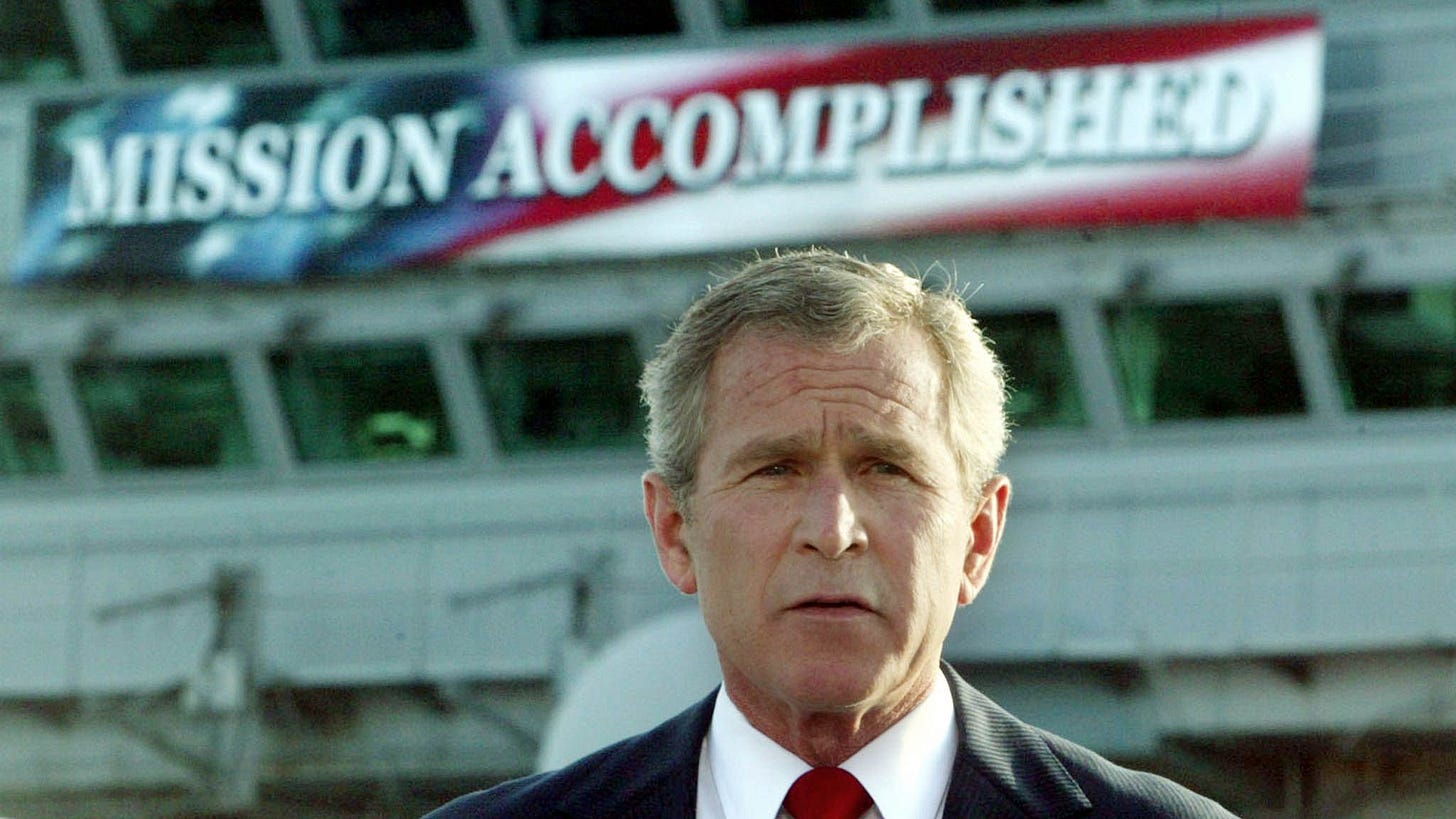
Lest anyone think I’m picking on Republican Presidents only, consider President Barack Obama’s time in office. Obama famously executed American citizens via drone strike, faced no consequences whatsoever, and unbelievably argued in court he had “unreviewable” Presidential authority to do so. As the ACLU then reported in 2010:
The Obama administration today argued before a federal court that it should have unreviewable authority to kill Americans the executive branch has unilaterally determined to pose a threat. Government lawyers made that claim in response to a lawsuit brought by the American Civil Liberties Union and the Center for Constitutional Rights (CCR) charging that the administration’s asserted targeted killing authority violates the Constitution and international law.
No charge. No trial. No due process of law. No conviction. Yes unilateral unreviewable execution. Let’s be clear, demanding the “unreviewable authority to kill Americans that the President has unilaterally determined poses a threat” sounds an awful lot like a “sacred and inviolable King for which there is no constitutional tribunal to which he is amenable.” President Obama’s Attorney General Eric Holder would later admit that the Obama Administration unilaterally killed at least four American citizens. No person in the Obama administration, obviously including himself, faced any accountability. And the blurring of Presidents and Kings continued.
Where Do We Go From Here?
The above list of illegal Presidential excursions is not exhaustive, but hopefully it is instructive on how we got here and the work that remains before us to restore justice.
I am certain this history makes some (many?) of my fellow Americans at least somewhat uncomfortable. To such neighbors I say, first, you’re uncomfortable because you care about our democracy. That’s a good thing. And second, remember that our safety and progress is not in accepting comfortable lies, but in embracing and acting upon uncomfortable truths. Thus, as we rightly condemn Donald Trump for his calls for unlimited Presidential immunity, it is important to recognize that he did not emerge out of a vacuum. He emerged out of a system that has consistently failed to uphold the principle that our Presidents are not Kings with unlimited immunity, but citizens who must “be liable to prosecution and punishment in the ordinary course of law.” And to reject Trump’s extremism, justice mandates we also reject attempts by other Presidents who violated U.S. and international law with impunity, invaded sovereign nations illegally, and killed American citizens with unilateral authority.
Indeed, after detailing all the contrasts between a President and a King, Alexander Hamilton concluded his Federalist Paper No. 69 with this gem:
What answer shall we give to those who would persuade us that things so unlike resemble each other? The same that ought to be given to those who tell us that a government, the whole power of which would be in the hands of the elective and periodical servants of the people, is an aristocracy, a monarchy, and a despotism.
Indeed, this is what is at stake. Failure to hold Presidents accountable to the rule of law—whether they be Democrats or Republicans—risks reducing our government to despotic rule. Unsurprisingly, that is what we currently face with the fascist Project 2025 expanding its power and reach over our nation.
This July 4, remember that our nation was not founded as a perfect Union. It is called to become a more perfect Union. It was not founded on the principle of Kings with divine rights, but upon the principle of a President accountable to the people and rule of law. Let us strive then, as We the People, to recognize this truth, to uphold this truth with meaningful action for justice, and build that more perfect Union together.
That, in my book, is what true patriotism looks like, and that is the task before us today.
Have a safe and happy Fourth of July!
Why Your Support Matters: Every dollar we spend is a vote for the kind of future we want. Help me create a future more committed to justice and universal human rights. Subscribe, and I welcome your thoughts, feedback, and insights. Thank you.



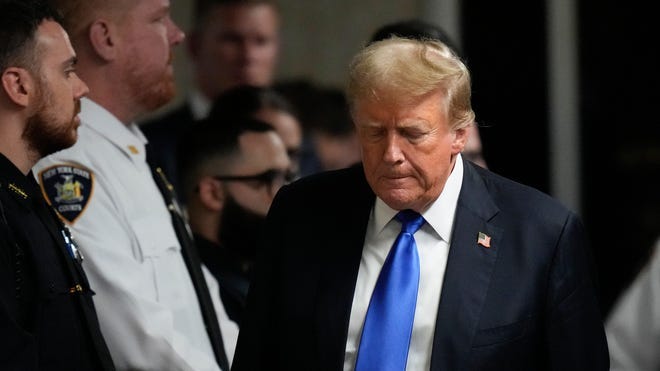
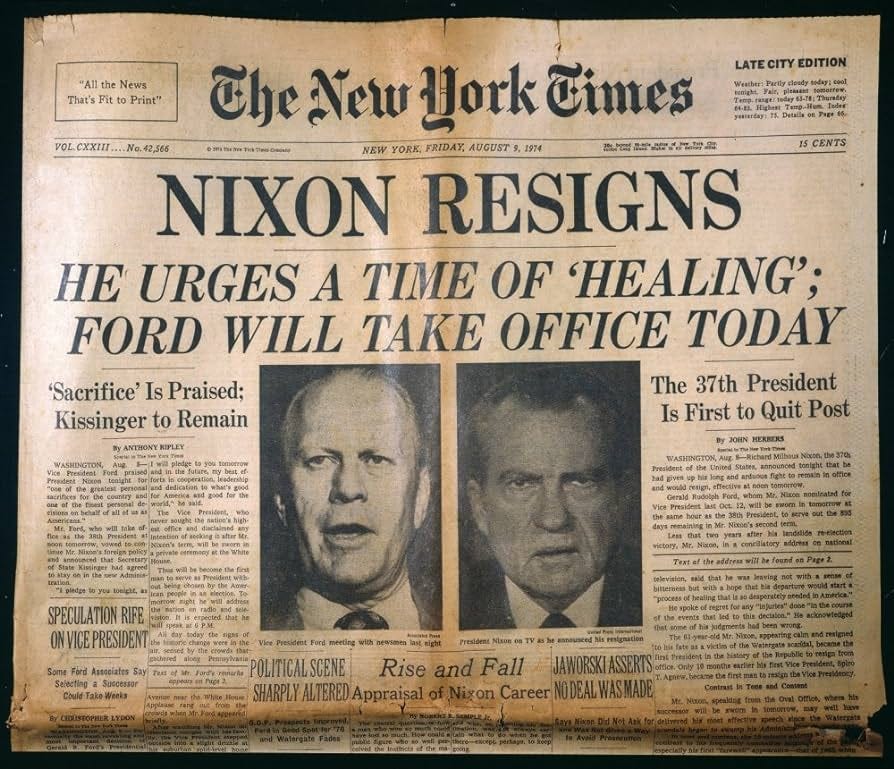
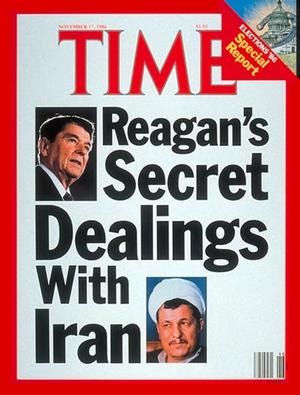

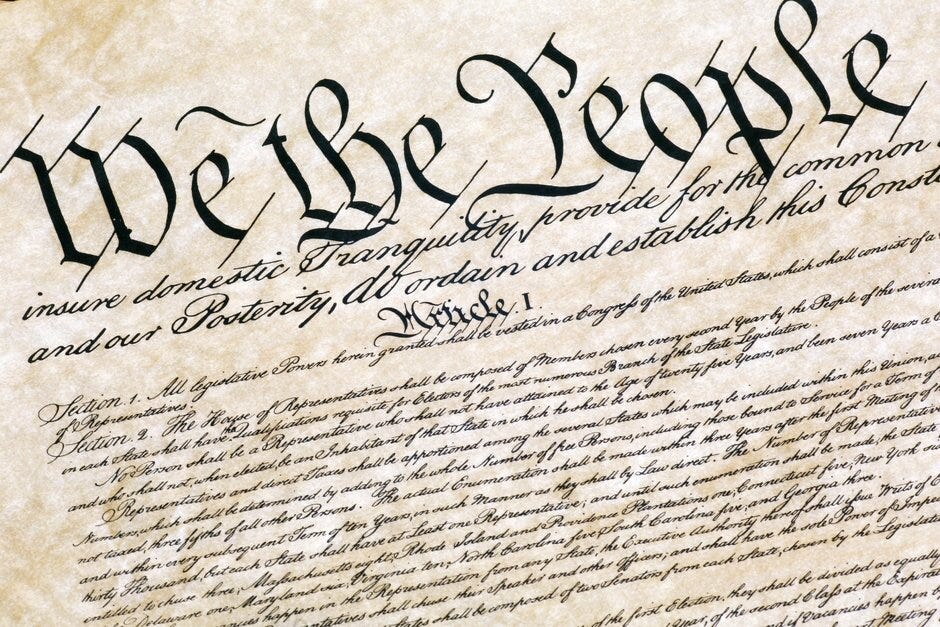
This. "This July 4, remember that our nation was not founded as a perfect Union. It is called to become a more perfect Union."
FDR, Japanese interment camps. Two atomic bombs dropped on civilians. Nixon. Reagan. Both Shrubs. Obama. All above the law. Every corrupt Wall Street banker, above the law. The immunity ruling is only status quo unmasked. The overturning of Roe and the Chevron Doctrine are what terrify me. If the Democrats are serious about saving this so called democracy, Biden would issue an executive order to expand SCOTUS, enshrine healthcare for women (abortion) and transgender people under the 4th amendment right to privacy. They would also codify the Chevron Doctrine and rewrite, to cover cable and streaming services, the Fairness Doctrine Reagan repealed years ago. If they don't do this, they have broken their oath to protect and defend our Constitution from enemies both foreign and domestic. You can't vote out fascism. It didn't work in 2020 and it won't work now. Garland fucked around, wasted 2 years. He never perused arresting the complicit Congress critters nor Ginnny Thomas. 147 traitors are still working in Congress, many are working for Putin others for Bibi. Trump is a Russian asset being allowed to run for president.The US isn't a serious country.